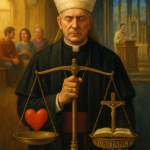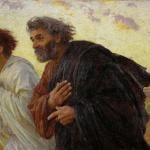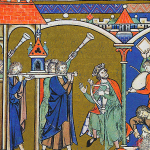CALIFORNIA DREAMING: A ramble through my thoughts on American lit. Please don’t expect coherence–I’m all about the random shards of commentary today.
For a while I’ve thought that the best and most American literature arose in opposition to the Enlightenment currents in American life and thought–the innocence/naivete, the exaltation of the powerful and good individual, the optimism and the rationalism. I’m trying to work out whether American literature is unusually obsessed with the Crucifixion (i.e. more obsessed than other national literatures–French, English and so on)–please feel free to email me about this. Certainly the movie critics will tell you that “redemption through violence” is an American cliche; and I think you see that, in less cliched forms, in the great literature as well, from Dickinson through As I Lay Dying. Not to mention the unique grimth of Philip Roth. And I’ve written before about the tragic conflicts inherent in a nation of immigrants, which you also see throughout our fiction.
California is possibly the most archetypically American destination, more so even than Henry Roth’s (or Sidney Falco’s) New York. For me the distilled California story is Irwin Shaw’s “Where All Things Wise and Fair Descend” (I got this from the Rat, a California almost-native) and the song, of course, is “California Dreaming“–almost, but not quite, a caricature of longing.
“America” is the name of a dream; and the collision of the dream-America and the real one necessarily produces bitterness. It turns out that we can’t reshape ourselves, escape our pasts, make ourselves at home. Which is one main reason American literature is so full of passionate reaction against the dream: Disillusioned idealists are ferocious critics, and America breeds idealists as if you could make money off it.











